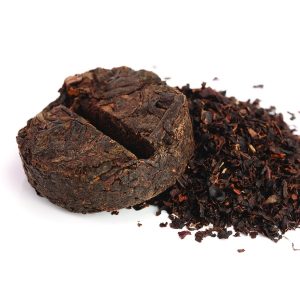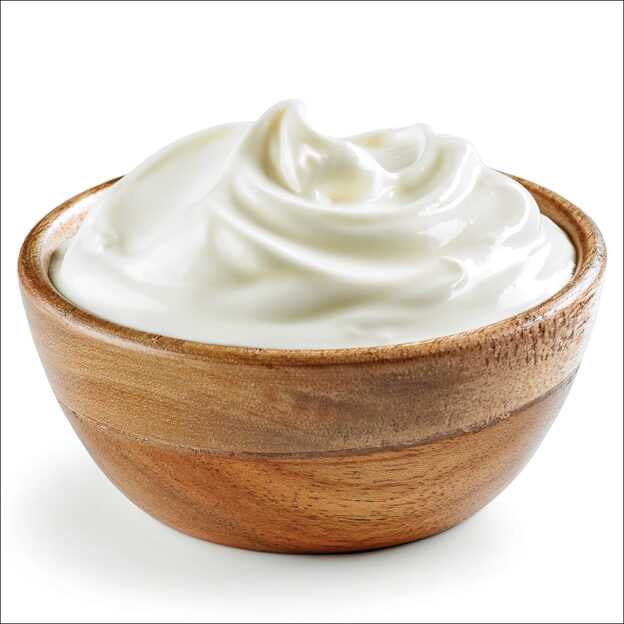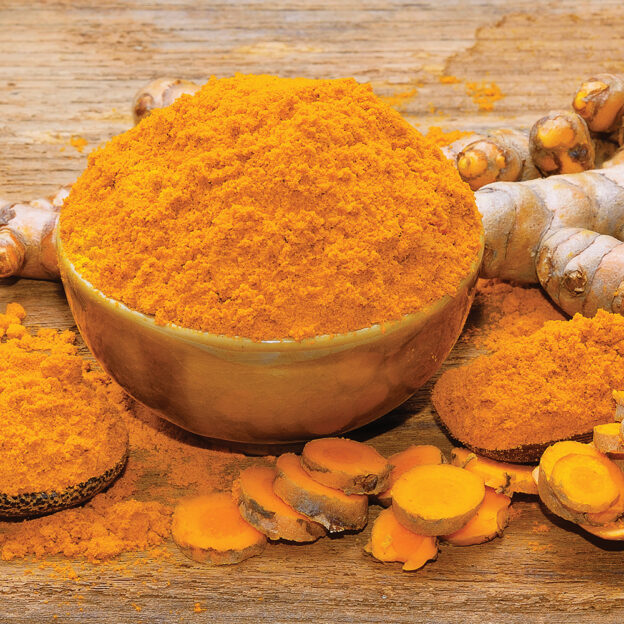
Perhaps the strangest and least known of all the teas made from the camellia sinensis plant, puerh tea (also spelled puer, and pronounced Poo-AR) is truly unique in every aspect. While black teas are oxidized, puerh teas go through a complete process of fermentation and aging—in some cases being aged for years, or decades—to achieve the desired taste and medicinal profile. The result is a tea with pronounced earthy flavors and a dissolved, inky-brown appearance.
There are two basic types of puerh: “ripe” puerh and “raw” puerh. Ripe puerh tea leaves are piled high, usually in a barn or similar building, where they are allowed to ferment through exposure to microbes. This tea leaf “compost” is turned over by the tea master until the desired level of fermentation has been achieved. The leaves are then packaged for consumption, often in the form of compressed bricks or cakes. Historically, puerh tea was traded from Yunnan to Tibet, where its compact structure made it easier to transport across the mountainous terrain.
The other variety of puerh, raw puerh, is likewise compressed into cakes, but instead of being “ripened,” the tea is allowed to age for many years, causing a more gradual fermentation. As a result, very old raw puerh can be quite expensive.
The purported health benefits of puerh are many. Puerh may aid digestion, and is often served following heavy meals. Puerh may also help reduce cholesterol while improving metabolic health, and, as a true ferment, puerh may help promote healthy intestinal flora. However, the best aspect of puerh may be its unique psychoactive profile. Unlike green or black teas, which can be excitatory, puerh produces a mellower, “inner eye” experience, making it great for forest bathing and other restorative activities. Indeed, many acupuncturists swear by puerh, seeing it as a great way to balance chi in the body.
As with all forms of caffeinated tea, puerh tea should be consumed in moderation, ideally after a meal. —TP
—Adapted from “Pu-erh Tea: Benefits, Dosage, Side Effects, and More” https://www.healthline.com/health/food-nutrition/pu-erh-tea-benefits





